The Strokes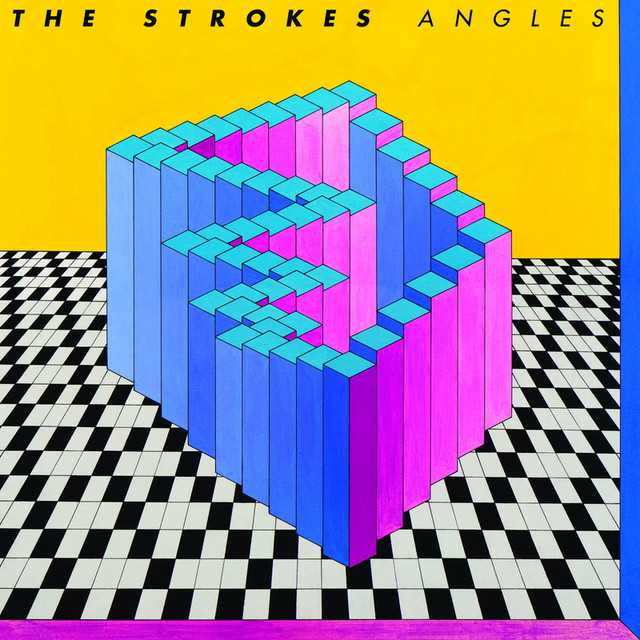 | ||
| Allmusic Biography : Equally inspired by classic tunesmiths like Buddy Holly and John Lennon and the street-smart attitude and angular riffs of fellow New Yorkers Television and the Velvet Underground, the Strokes were also equally blessed and cursed with an enormous amount of hype -- particularly from the U.K. music press, whose adulation for the group rivaled their fervor for Oasis in the early 90s. Barely in their twenties by the time their debut album, Is This It, arrived in 2001, singer/songwriter Julian Casablancas, guitarists Nick Valensi and Albert Hammond, Jr., bassist Nikolai Fraiture, and drummer Fabrizio Morettis success wasnt quite of the overnight variety, but it still arrived pretty swiftly. Casablancas (the son of Elite Model Agency Group kingpin John Casablancas), Moretti (who began playing drums at age five), and Valensi started playing together in 1998 while they attended the Dwight School, a private prep school in Manhattan. Soon thereafter they met Fraiture, who attended the Upper East Sides Lycee Français, and added him to their ranks. Hammond (the son of singer/songwriter Albert Hammond, whose songs include "It Never Rains in Southern California," "When I Need You," and "To All the Girls Ive Loved Before") came from Los Angeles to attend film school at NYU and was invited into the band by Casablancas; the two met at LInstitut le Rosey in Switzerland when they were kids. Casablancas officially christened the quintet the Strokes in 1999, and the group spent most of that year writing and rehearsing material in New York Citys Music Building. They made their live debut that fall at the Spiral, and word of mouth about the Strokes incendiary live show propelled them to gigs at venues like Under the Acme and Lower East Side clubs such as Arlene Grocery, Baby Jupiter, and Luna. The Strokes December 2000 dates at the Mercury Lounge and the Bowery Ballroom not only gained them a manager (Ryan Gentles, who booked them at those clubs), but also helped Strokes mania reach critical mass in New York. Rough Trade released the groups three-song demo as The Modern Age EP in January 2001, which sparked a bidding war from which RCA emerged as the victor. Meanwhile, the Strokes acclaim reached the U.K. and grew to massive proportions over the course of the year. NME quickly became their champions, profiling them several times that spring and summer as the Strokes live act and singles like Hard to Explain (which debuted at number 16 in the U.K. charts) won them a rabid British following. That spring, the band also completed its first U.S. tour as the opening act for the Doves and proceeded to play dates with Guided by Voices and ...And You Will Know Us by the Trail of Dead in the U.S. and the U.K. The groups popularity continued to snowball in the U.K., with a side-stage slot at the NME Carling Weekender changed to a main-stage performance for fear of people trampling each other to see the band. In late summer of that year, Rough Trade released Is This It with an album cover featuring a sexy, Helmut Newton-esque photo of a womans nude behind and hip with a leather-gloved hand resting on it; the U.K. chains Woolworths and HMV objected to its controversial nature. The U.S. version of Is This It was released in October and featured a few changes from the U.K. edition. The Strokes opted for an abstract pattern on the cover and removed the song "New York City Cops," feeling the song was inappropriate in the wake of the terrorist attacks that struck New York prior to the albums release; the planned B-side, "When It Started," took its place. The group closed out the fall with an extended tour of the U.S., culminating with a Halloween gig at New Yorks Hammerstein Ballroom. The remainder of 2001 and 2002 saw the groups profile continue to rise. Is This It and the Strokes were lauded in many ways, ranging from This Isnt It, an EP of instrumental versions of some of the albums songs performed by a mystery band called the Diffrent Strokes (Pulps Jarvis Cocker was rumored to be a member) to 2001 NME Carling Awards for Best New Act, Band of the Year, and Album of the Year. The band toured extensively throughout 2002, including a series of dates that summer in New York and Detroit with the White Stripes, summer festivals at Reading and Leeds, and a string of gigs supporting Weezer, some of which were canceled due to a leg injury Casablancas suffered. During these shows, their fall tour, and their dates opening for the Rolling Stones, the Strokes debuted some new songs, including "Meet Me in the Bathroom," "You Talk Way Too Much," and "The Way It Is." By March 2003, the band was ready to start recording its new album, but instead of working with Is This It producer Gordon Raphael as previously reported, the Strokes began recording with Nigel Godrich of Radiohead and Beck fame. That May, however, the Strokes sessions with Godrich came to an end, and they returned to Raphael to finish the album. The single "12:51" introduced the more meticulous, new wave-inspired sound of Room on Fire, which arrived in fall 2003. Just before the albums release, the Strokes hit the road once again, taking Kings of Leon with them. Early in 2006, they returned with the even poppier and more polished First Impressions of Earth. The band took a hiatus after the tour for that album, with each member working on other projects. Albert Hammond, Jr. was the first to venture into the solo fray with Yours to Keep, which was released in late 2006 in the U.K. and in early 2007 in the U.S.; he followed it with 2008s Como Te Llama? Fabrizio Moretti played with the indie pop band Little Joy, whose self-titled album arrived in late 2008. Nikolai Fraiture embarked on the folky solo project Nickel Eye, and released the debut Time of the Assassins in early 2009. Although the Strokes headed back into the studio that same year, progress was slow as Julian Casablancas briefly shifted his attention to a solo album, Phrazes for the Young, which arrived that fall. After playing a headlining slot at Lollapalooza in 2010, the Strokes returned to the studio with renewed focus, eventually emerging with 2011s Angles. Given the gap between their two previous albums, it was something of a surprise when they returned in early 2013 with Comedown Machine, a more streamlined, subdued affair that reunited the band with Angles producer Gus Oberg. The members of the Strokes then spent a couple of years pursuing individual projects: Casablancas formed the Voidz, whose politically minded debut album Tyranny arrived in 2014. That year, Valensi contributed to Brody Dalles album Diploid Love, and Hammond, Jr. released his third solo album, Momentary Masters, in 2015. The band reunited in 2016 for a string of shows and Future Present Past, their first EP in 15 years and their first release on Casablancas Cult Records. | ||
![Allmusic album Review : Blessed and cursed with an enormous amount of hype from the British press, the Strokes prove to be one of the few groups deserving of their glowing reviews. Granted, their high-fashion appeal and faultless influences -- Television, the Stooges, and especially Lou Reed and the Velvets -- have "critics darlings" written all over them. But like the similarly lauded Elastica and Supergrass before them, the Strokes dont rehash the sounds that inspire them -- they remake them in their own image. On the Modern Age EP, singles like Hard to Explain, and their full-length debut, Is This It, the N.Y.C. group presents a pop-inflected, second-generation take on late-70s New York punk, complete with raw, world-weary vocals, spiky guitars, and an insistently chugging backbeat. However, their songs also reflected their own early-twenties lust for life; singer/songwriter/guitarist Julian Casablancas and the rest of the band mix swaggering self-assurance with barely concealed insecurity on "The Modern Age" and reveal something akin to earnestness on "Barely Legal" -- a phrase that could apply to the Strokes themselves -- in the songs soaring choruses. The group revamps "Lust for Life" on "New York City Cops" and combines their raw power and infectious melodies on "Hard to Explain," arguably the finest song theyve written in their career. Nearly half of Is This It consists of their previously released material, but thats not really a disappointment since those songs are so strong. What makes their debut impressive, however, is that the new material more than holds its own with the tried-and-true songs. "Is This It" sets the joys of being young, jaded, and yearning to a wonderfully bouncy bassline; "Alone Together" and "Trying Your Luck" develop the groups brooding, coming-down side, while "Soma," "Someday," and "Take It or Leave It" capture the Strokes at their most sneeringly exuberant. Able to make the timeworn themes of sex, drugs, and rock & roll and the basic guitars-drum-bass lineup seem new and vital again, the Strokes may or may not be completely arty and calculated, but that doesnt prevent Is This It from being an exciting, compulsively listenable debut. [In light of the World Trade Center disaster, the track "New York City Cops" was pulled from the U.S. release]. is_this_it](../../images/the_strokes-is_this_it.jpg) | Album: 1 of 7 Title: Is This It Released: 2001-07-29 Tracks: 11 Duration: 36:28 Scroll: Up Down Top Bottom 25% 50% 75% Spotify TrackSamples Allmusic AlbumCover | 1 Is This It (02:35) 2 The Modern Age (03:32) 3 Soma (02:37) 4 Barely Legal (03:58) 5 Someday (03:07) 6 Alone, Together (03:12) 7 Last Nite (03:17) 8 Hard to Explain (03:47) 9 New York City Cops (03:36) 10 Trying Your Luck (03:27) 11 Take It or Leave It (03:16) |
| Is This It : Allmusic album Review : Blessed and cursed with an enormous amount of hype from the British press, the Strokes prove to be one of the few groups deserving of their glowing reviews. Granted, their high-fashion appeal and faultless influences -- Television, the Stooges, and especially Lou Reed and the Velvets -- have "critics darlings" written all over them. But like the similarly lauded Elastica and Supergrass before them, the Strokes dont rehash the sounds that inspire them -- they remake them in their own image. On the Modern Age EP, singles like Hard to Explain, and their full-length debut, Is This It, the N.Y.C. group presents a pop-inflected, second-generation take on late-70s New York punk, complete with raw, world-weary vocals, spiky guitars, and an insistently chugging backbeat. However, their songs also reflected their own early-twenties lust for life; singer/songwriter/guitarist Julian Casablancas and the rest of the band mix swaggering self-assurance with barely concealed insecurity on "The Modern Age" and reveal something akin to earnestness on "Barely Legal" -- a phrase that could apply to the Strokes themselves -- in the songs soaring choruses. The group revamps "Lust for Life" on "New York City Cops" and combines their raw power and infectious melodies on "Hard to Explain," arguably the finest song theyve written in their career. Nearly half of Is This It consists of their previously released material, but thats not really a disappointment since those songs are so strong. What makes their debut impressive, however, is that the new material more than holds its own with the tried-and-true songs. "Is This It" sets the joys of being young, jaded, and yearning to a wonderfully bouncy bassline; "Alone Together" and "Trying Your Luck" develop the groups brooding, coming-down side, while "Soma," "Someday," and "Take It or Leave It" capture the Strokes at their most sneeringly exuberant. Able to make the timeworn themes of sex, drugs, and rock & roll and the basic guitars-drum-bass lineup seem new and vital again, the Strokes may or may not be completely arty and calculated, but that doesnt prevent Is This It from being an exciting, compulsively listenable debut. [In light of the World Trade Center disaster, the track "New York City Cops" was pulled from the U.S. release]. | ||
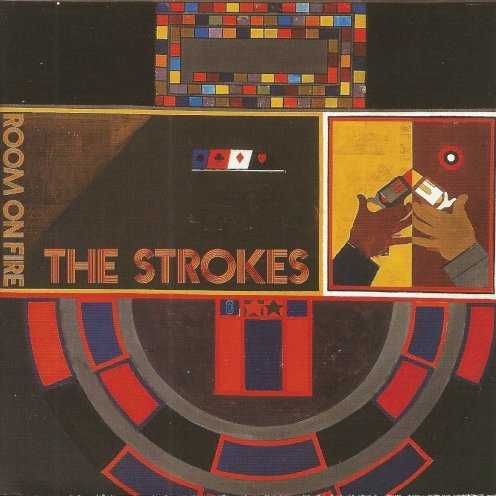 | Album: 2 of 7 Title: Room on Fire Released: 2003-10-20 Tracks: 11 Duration: 32:09 Scroll: Up Down Top Bottom 25% 50% 75% Spotify TrackSamples Allmusic AlbumCover | 1 What Ever Happened? (02:49) 2 Reptilia (03:37) 3 Automatic Stop (03:20) 4 12:51 (02:27) 5 You Talk Way Too Much (02:59) 6 Between Love & Hate (03:11) 7 Meet Me in the Bathroom (02:51) 8 Under Control (03:01) 9 The Way It Is (02:16) 10 The End Has No End (03:00) 11 I Can’t Win (02:33) |
| Room on Fire : Allmusic album Review : Unlike many bands that release notable debut albums and then take years to deliver a follow-up, the Strokes got Room on Fire out as quickly as possible after their lengthy tour for Is This It. Good thing, too; the two years between their debut and this album were long enough for the expectations for -- and the backlash against -- a new Strokes album to reach formidable proportions. And the Strokes sound like they have a lot to prove on Room on Fire, not to their naysayers, but to themselves. On the surface, the album isnt drastically different than Is This It, but its not predictable. Instead of delivering an albums worth of "Last Nite"s, "Someday"s, and "NYC Cop"s, Room on Fire expands on their debuts off-kilter and complex tracks, like "Is This It?" and "Hard to Explain." The albums first single, "12:51," signals the Strokes intent: its whistling, synth-like guitars and handclaps are undeniably catchy, but at first, the song seems to be searching for a structure. Eventually, though, it becomes sneakily addictive -- its a stealth pop song. Likewise, the album opens with "What Ever Happened?," on which Julian Casablancas snarls "I wanna be forgotten/And I dont wanna be reminded" -- not exactly the likeliest start to what should be a triumphant second album from one of the most celebrated rock bands of the 2000s. In many ways, Room on Fire is the Strokes bid to be taken seriously, which may be why they began this album with producer Nigel Godrich before returning to Is This It producer Gordon Raphael. To his credit, Raphael gives the album its own sound: its brighter and fuller than Is This Its low-rent production. Room on Fire also has a distinct attitude. Is This It sounded effortless, but its evident that a great deal of effort was put into Room on Fire. Yet the albums most crafted moments are its most exciting: "Automatic Stop," a playful, poignant look back at a love triangle, lopes along to a reggae beat (and features the witty lyrics "So many fish there in the sea/I wanted her/He wanted me"). "Under Control," an awkwardly gorgeous homage to 60s soul, is possibly the best Strokes song yet. Several songs recapture some of Is This Its exuberance; not surprisingly, theyre the ones that the band wrote while on tour. "You Talk Way Too Much" revs on one of their most Velvets-y riffs; "Meet Me in the Bathroom"s Motown-like bassline and shimmery guitars add some style to its underlying sleaze. However, the Strokes are a different band than when they recorded Is This It, and Room on Fires best songs acknowledge that. Theres a weariness lingering around Room on Fire like stale smoke, especially on "The End Has No End," a loop of a song about a nagging breakup that repeats its seemingly nonsensical title in a surprisingly affecting way. "Reptilia," meanwhile, sounds like a long night of partying turned sour. "Please dont slow me down if Im going too fast," Casablancas wails (most of Room on Fires distortion comes from his vocals, which give the impression that hes gargled with turpentine and brushed his teeth with steel wool for the past two years). The motif of moving too fast and not minding it winds through Room on Fire, reflecting its svelte 33-minute running time as well as the swiftness of the Strokes career. This compressed feel, the precision of the bands playing and arrangements, and the way every song comes to an abrupt stop sometimes make the album sound too closed-off. Room on Fires best moments fight against this tendency and suggest that the Strokes are continuing to grow, perhaps beyond what their listeners want from them. Some may gripe that its never as good as the first time, but Room on Fire shows that even after all that happened to the Strokes, they can still surprise. | ||
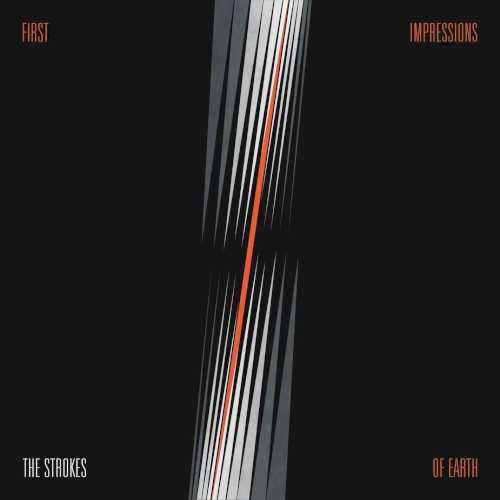 | Album: 3 of 7 Title: First Impressions of Earth Released: 2005-12-30 Tracks: 14 Duration: 52:19 Scroll: Up Down Top Bottom 25% 50% 75% Spotify Wikipedia Allmusic AlbumCover | 1 You Only Live Once (03:09) 2 Juicebox (03:17) 3 Heart in a Cage (03:27) 4 Razorblade (03:29) 5 On the Other Side (04:38) 6 Vision of Division (04:20) 7 Ask Me Anything (03:12) 8 Electricityscape (03:33) 9 Killing Lies (03:50) 10 Fear of Sleep (04:00) 11 15 Minutes (04:34) 12 Ize of the World (04:29) 13 Evening Sun (03:06) 14 Red Light (03:11) |
| First Impressions of Earth : Allmusic album Review : Arriving at the dawn of 2006, the Strokes First Impressions of Earth was one of the years first albums, and one of its first disappointments as well. To be fair, First Impressions starts out strong. "You Only Live Once" is everything a fan could want from a Strokes song, with a joyful melody, skipping rhythm, and cheerfully snotty lyrics. "Juicebox," meanwhile, moves from a bassline nicked from the "Peter Gunn Theme" to ragged grunge before landing on a soaring, plaintive chorus. Love it or hate it, the song has a boldness and creativity that is in short supply elsewhere on First Impressions of Earth. On the other hand, the similarly experimental "15 Minutes," a shambling mess of a ballad that eventually ignites into a rocker, is so odd that it ends up being more surprising than disappointing. That honor goes to the songs that sound like the band is just tracing over its own work -- and not especially well. Waiting for memorable hooks and lyrics to emerge from "Heart in a Cage," "Electricityscape," and other half-formed songs is a lot more depressing than the occasional failed experiment. Indeed, depression is a big theme on First Impressions of Earth; while jaded and bruised lyrical territory is nothing new for the Strokes, now they sound boring instead of just bored with everything around them. On "Ask Me Anything," an otherwise pretty ballad, Casablancas repeats "Ive got nothing to say" so often that the listener has no choice but to believe him. There are a few bright moments: "Ize of the World" and "Razorblade" channel the bite of the bands older work without rehashing it entirely. At just under an hour long, First Impressions of Earth is nearly the length of the Strokes first two albums combined. They used to be impeccable editors, both in the length of their songs and which ones ended up on their albums. Is This It was a debut album so solid that it felt like a greatest-hits comp; hints of reggae, soul, and 80s pop flavored Room on Fire without overwhelming it. Here, the Strokes indulge their every whim, and the result is their weakest album yet. It seems that less really was more with them, and now more is simply too much. | ||
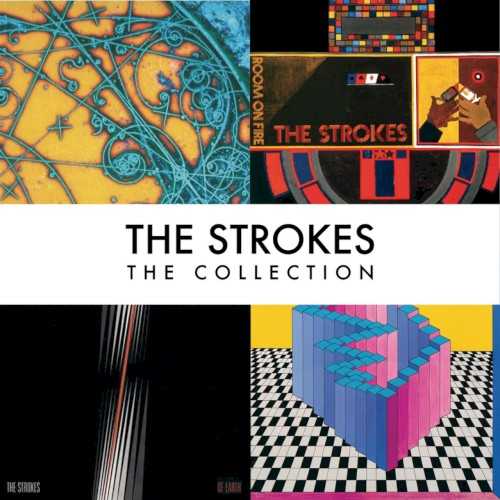 | Album: 4 of 7 Title: The Strokes: The Collection Released: 2011-02-22 Tracks: 36 Duration: 2:00:39 Scroll: Up Down Top Bottom 25% 50% 75% AlbumCover | 1 Is This It (02:35) 2 The Modern Age (03:32) 3 Soma (02:37) 4 Barely Legal (03:58) 5 Someday (03:07) 6 Alone, Together (03:12) 7 Last Nite (03:17) 8 Hard to Explain (03:47) 9 When It Started (02:56) 10 Trying Your Luck (03:27) 11 Take It or Leave It (03:16) 1 What Ever Happened? (02:49) 2 Reptilia (03:37) 3 Automatic Stop (03:20) 4 12:51 (02:27) 5 You Talk Way Too Much (03:06) 6 Between Love & Hate (03:11) 7 Meet Me in the Bathroom (02:51) 8 Under Control (03:07) 9 The Way It Is (02:21) 10 The End Has No End (03:00) 11 I Cant Win (02:42) 1 You Only Live Once (03:09) 2 Juicebox (03:17) 3 Heart in a Cage (03:27) 4 Razorblade (03:29) 5 On the Other Side (04:38) 6 Vision of Division (04:19) 7 Ask Me Anything (03:12) 8 Electricityscape (03:33) 9 Killing Lies (03:50) 10 Fear of Sleep (04:00) 11 15 Minutes (04:34) 12 Ize of the World (04:29) 13 Evening Sun (03:06) 14 Red Light (03:11) |
 | Album: 5 of 7 Title: Angles Released: 2011-03-18 Tracks: 10 Duration: 34:26 Scroll: Up Down Top Bottom 25% 50% 75% Spotify Wikipedia Allmusic AlbumCover | 1 Machu Picchu (03:32) 2 Under Cover of Darkness (03:57) 3 Two Kinds of Happiness (03:43) 4 You’re So Right (02:33) 5 Taken for a Fool (03:24) 6 Games (03:53) 7 Call Me Back (03:03) 8 Gratisfaction (02:59) 9 Metabolism (03:04) 10 Life Is Simple in the Moonlight (04:15) |
| Angles : Allmusic album Review : When the Strokes returned from their lengthy post-First Impressions of Earth hiatus with Angles, they’d been apart almost as long as they’d been together. While they were gone, they cast a long shadow: upstarts like the Postelles and Neon Trees borrowed more than a few pages from their stylebook, and even established acts like Phoenix used the band’s strummy guitar pop for their own devices. During that time, the members of the Strokes pursued side projects that were more or less engaging, but it felt like the band still had unfinished business; though First Impressions was ambitious, it didn’t feel like a final statement. For that matter, neither does Angles, which arrived just a few months shy of their classic debut Is This Its tenth anniversary. Clocking in at a svelte 34 minutes, it’s as short as the band’s early albums, but Angles is a different beast. Somehow, the Strokes sound more retro here than they did before, with slick production coating everything in a new wave sheen. More worryingly, and perhaps inevitably, the group comes across more like a well-oiled machine than the gang they felt like on every other album. Fabrizio Morettis drums are more mechanically precise than ever, and Julian Casablancas voice is walled off in distortion that stands in sharp contrast to his pristine surroundings. This distance allows Nick Valensi to be Angles star, turning in witty responses to Casablancas vocals and dazzling solos like the one that graces “Two Kinds of Happiness” mix of power pop and post-punk. But even if the Strokes don’t sound as passionate as they did before, they deliver a few quintessential moments. “Under Cover of Darkness” is an über-Strokes song, with tumbling verses that borrow “Last Night”s melody and soaring, secretly earnest choruses; meanwhile, “Machu Picchu”s reggae-fied strut harks back to Room on Fire. They sound even better -- and less studied -- on “Taken for a Fool,” which, with lines like “Monday, Tuesday is my weekend,” rivals their earlier songs for quotability, and on “Gratisfaction,” which plays like the perfect cross between Nick Lowes “And So It Goes” and everything Billy Joel recorded from the late ‘70s to the early ‘80s. When they venture from this territory, the results are mixed, ranging from the sweet synth pop of “Games” and “Life Is Simple in the Moonlight” to less successful, insular experiments like “Call Me Back” and “You’re So Right.” Ultimately, Angles best moments are reassuring rather than exciting, offering proof that the Strokes can still make an album together, and hope that itll come more naturally to them next time. | ||
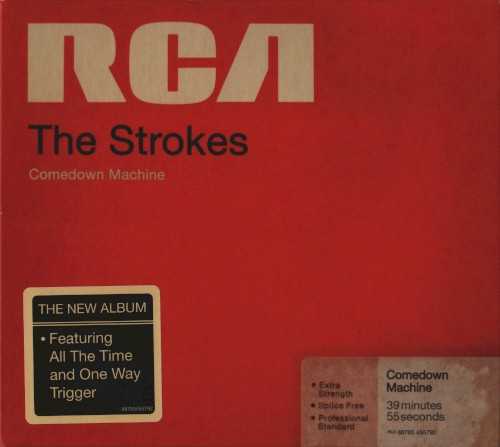 | Album: 6 of 7 Title: Comedown Machine Released: 2013-03-22 Tracks: 11 Duration: 39:54 Scroll: Up Down Top Bottom 25% 50% 75% Spotify Allmusic AlbumCover | 1 Tap Out (03:42) 2 All the Time (03:01) 3 One Way Trigger (04:02) 4 Welcome to Japan (03:50) 5 80s Comedown Machine (04:58) 6 50/50 (02:43) 7 Slow Animals (04:20) 8 Partners in Crime (03:21) 9 Chances (03:36) 10 Happy Ending (02:52) 11 Call It Fate, Call It Karma (03:24) |
| Comedown Machine : Allmusic album Review : Arriving a relatively quick two years after Angles, Comedown Machine reunites the Strokes with producer Gus Oberg, but the results sound a lot less slick and overwrought. Instead, Oberg provides a clean, intimate sound that feels like a natural progression for the band, with a mix of chugging guitars and synths that feels more organic and less like blatant 80s worship (and also bears a striking similarity to Julian Casablancas solo album Phrazes for the Young). Likewise, most of Angles uneven but entertaining tangents are smoothed away, making it one of the Strokes more consistent albums in some time. True to its name, however, Comedown Machine is also some of the bands most subdued music: there are fewer uptempo songs than might be expected, and even when their amps are cranked, the Strokes arent exactly carefree. "All the Time"s refrain of "Youre livin too fast" is a far cry from "Room on Fire"s "Please dont slow me down if Im going too fast," and on the albums most quintessential rocker, "50/50," Casablancas snarls "Dont judge me" over artfully mussed guitars in a way that feels more defensive than defiant. For most of Comedown Machine, the band uses some of its prettiest melodies -- and some impressive falsetto vocals -- to craft a vulnerable, quietly confrontational mood on songs like "Tap Out" and "Slow Animals," which has an almost soulful roundness to its melody as Casablancas wonders, "Is it gone?" They venture deeper into this softer territory on the albums title track, which rivals First Impressions of Earths "Ask Me Anything" in its dreamy introspection, and on "Chances," which boasts soft-focus keyboards that flirt with chillwave. At times, the bands precise playing and Obergs pristine production border on airless and only emphasize the fact that the Strokes left the reckless charm of Is This It behind years ago. However, their flair for hooks and melodies is as strong as ever, particularly on "Partners in Crime," "Welcome to Japan," and "One Way Trigger," which sets pre-life crisis laments to a perky keyboard riff reminiscent of a-has "Take on Me." The Strokes most mature music yet, Comedown Machine is a solidly enjoyable album, even if it lacks some of the bands previous spark. | ||
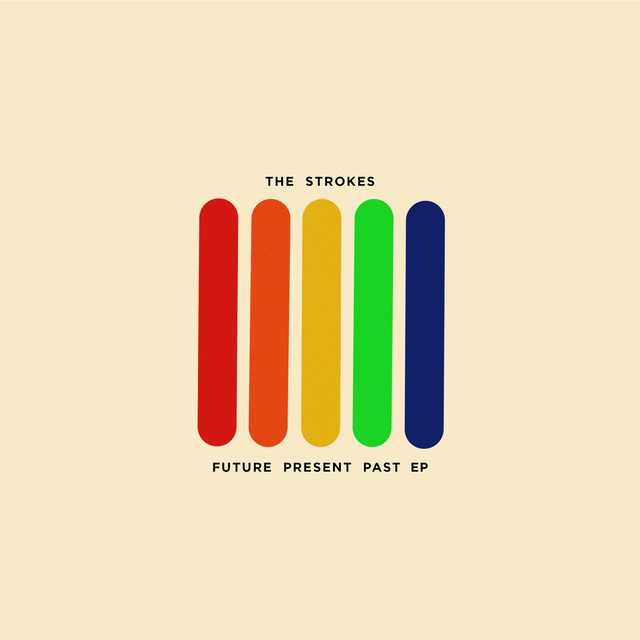 | Album: 7 of 7 Title: Future Present Past Released: 2016-06-03 Tracks: 4 Duration: 19:27 Scroll: Up Down Top Bottom 25% 50% 75% Spotify Allmusic AlbumCover | 1 Drag Queen (04:33) 2 Oblivius (04:59) 3 Threat of Joy (04:24) 4 Oblivius (Fab Moretti remix) (05:31) |